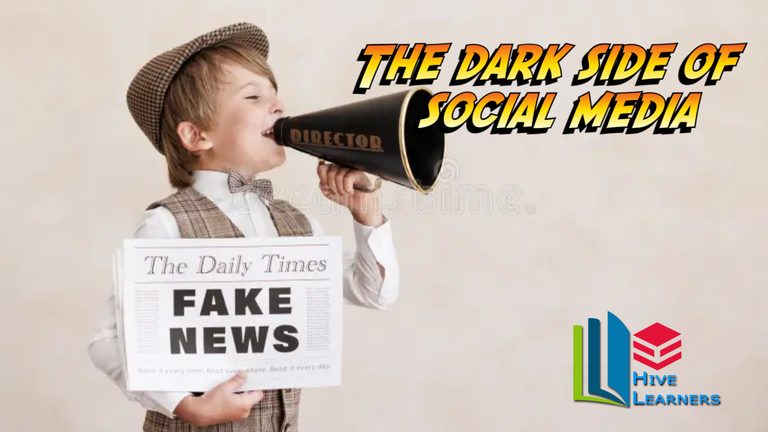[EN/PT] The Dark Side Of Social Media
[EN]

Social media emerged with the aim of connecting people from different parts of the world. In the early days of the internet, platforms such as MSN and Orkut allowed users to talk to each other and share personal photos. Over time, social networks evolved in terms of usability, and companies soon realized their enormous potential as marketing tools.
With this scenario, ordinary people became influencers, individuals with the power to impact opinions and behavior. The more followers, the greater the possibilities for monetizing content and partnering with brands to promote products, services and ideas. The digital influencer has become a new profession, occupying a space that previously belonged to traditional marketing in media such as television, radio and newspapers.
Among those who most exploit this new form of communication are politicians. Both during election periods and beyond, social networks have become a showcase for publicizing actions, public spending, projects and oversight activities. At first glance, this may seem positive, as it offers citizens greater transparency about the actions of their representatives.

However, the downside of this new dynamic is the spread of fake news. Many politicians have realized that social networks are powerful weapons not only for promoting their image, but also for attacking opponents and manipulating public opinion. The massive spread of false information ends up confusing the population, who often believe everything they see or read on digital platforms.
Today, social networks in Brazil are heavily contaminated by political fake news. The political debate has become extremely polarized, divided mainly between two sides: the right, which advocates less state intervention and more economic freedom; and the left, which prioritizes public policies and social benefits. However, regardless of the discourse, many politicians act guided by their own interests, while part of the population is carried away by narratives and wastes time on often empty ideological disputes.
On the one hand, there are political groups that dominate social networks and use them strategically to spew disinformation (as often happens on the right); on the other, there are sectors that claim to be victims of fake news (often linked to the left), but which also resort to these practices, while at the same time advocating regulation of the internet under the argument of combating disinformation.
In the long run, the political use of social networks has proved to be more harmful than beneficial to the population, especially with regard to fake news. To protect themselves from this type of content, people need to learn to filter what they consume and, whenever possible, stop paying attention to this type of material. Although politics directly influences our lives, it is important to recognize the limits of our control over it. Instead of letting frustration consume us, perhaps the best course of action is to focus on following our own plans, without depending on politician A or B.
If you've made it this far, thank you very much for your time and if this content has been useful in any way, please leave your upvote and reblog!

[PT]

As mídias sociais surgiram com a proposta de conectar pessoas de diferentes partes do mundo. Nos primórdios da internet, plataformas como MSN e Orkut permitiam que os usuários conversassem entre si e compartilhassem fotos pessoais. Com o tempo, as redes sociais evoluíram em termos de usabilidade, e as empresas logo perceberam seu enorme potencial como ferramentas de marketing.
Com esse cenário, pessoas comuns passaram a se tornar influenciadores, indivíduos com o poder de impactar opiniões e comportamentos. Quanto mais seguidores, maiores são as possibilidades de monetização de conteúdo e de parcerias com marcas para a divulgação de produtos, serviços e ideias. O influenciador digital tornou-se uma nova profissão, ocupando um espaço que antes pertencia ao marketing tradicional veiculado em mídias como televisão, rádio e jornal.
Entre os que mais exploram essa nova modalidade de comunicação estão os políticos. Tanto em períodos eleitorais quanto fora deles, as redes sociais se tornaram uma vitrine para divulgar ações, gastos públicos, projetos e atividades de fiscalização. Em um primeiro momento, isso pode parecer positivo, já que oferece ao cidadão maior transparência sobre a atuação dos seus representantes.

No entanto, o lado negativo dessa nova dinâmica é a disseminação de fake news. Muitos políticos perceberam que as redes sociais são armas poderosas não só para promover sua imagem, mas também para atacar adversários e manipular a opinião pública. A propagação massiva de informações falsas acaba confundindo a população, que muitas vezes acredita em tudo o que vê ou lê nas plataformas digitais.
Hoje, as redes sociais no Brasil estão fortemente contaminadas por fake news de cunho político. O debate político tornou-se extremamente polarizado, dividido principalmente entre dois lados: a direita, que defende menos intervenção estatal e mais liberdade econômica; e a esquerda, que prioriza políticas públicas e benefícios sociais. No entanto, independentemente do discurso, muitos políticos agem guiados por interesses próprios, enquanto parte da população se deixa levar por narrativas e perde tempo com disputas ideológicas muitas vezes vazias.
De um lado, há grupos políticos que dominam as redes sociais e as utilizam estrategicamente para lançar desinformação (como ocorre com frequência na direita); do outro, há setores que se dizem vítimas dessas fake news (frequentemente ligados à esquerda), mas que também recorrem a essas práticas, ao mesmo tempo em que defendem a regulação da internet sob o argumento de combater a desinformação.
A longo prazo, o uso político das redes sociais tem se mostrado mais prejudicial do que benéfico à população, especialmente no que diz respeito às fake news. Para se proteger desse tipo de conteúdo, as pessoas precisam aprender a filtrar o que consomem e, sempre que possível, deixar de dar atenção a esse tipo de material. Embora a política influencie diretamente nossas vidas, é importante reconhecer os limites do nosso controle sobre ela. Em vez de se deixar consumir pela frustração, talvez o melhor caminho seja focar em seguir nossos próprios planos, sem depender de político A ou B.
Se chegou até aqui muito obrigado pelo seu tempo e se de alguma forma este conteúdo foi útil, deixe seu upvote e reblog!

Posted Using INLEO

Obrigado por promover a comunidade Hive-BR em suas postagens.
Vamos seguir fortalecendo a Hive
Bzzzrrr, tema interessante! A dark side das redes sociais é uma realidade, parece que a falha no sistema é a falta de critériamente ao compartilhar informações. Zuuzz!
#hivebr
AI generated content
Commands: !pixbee stop | !pixbee start | !pixbee price
This post has been manually curated by @bhattg from Indiaunited community. Join us on our Discord Server.
Do you know that you can earn a passive income by delegating to @indiaunited. We share more than 100 % of the curation rewards with the delegators in the form of IUC tokens. HP delegators and IUC token holders also get upto 20% additional vote weight.
Here are some handy links for delegations: 100HP, 250HP, 500HP, 1000HP.
100% of the rewards from this comment goes to the curator for their manual curation efforts. Please encourage the curator @bhattg by upvoting this comment and support the community by voting the posts made by @indiaunited.
!PIMP
Delegate your HP to the hive-br.voter account and earn Hive daily!
🔹 Follow our Curation Trail and don't miss voting! 🔹
The fake news and the social media are so close that I can't imagine how we could fight against it...maybe leaving the platforms that allow misinformation and fake news. Great article!
!PIZZA
!INDEED
!DIY